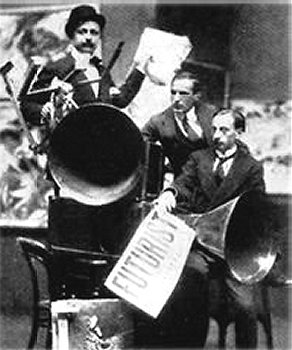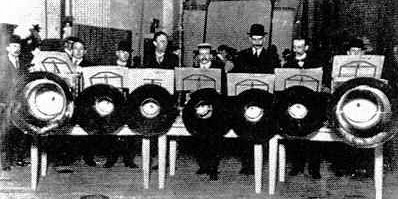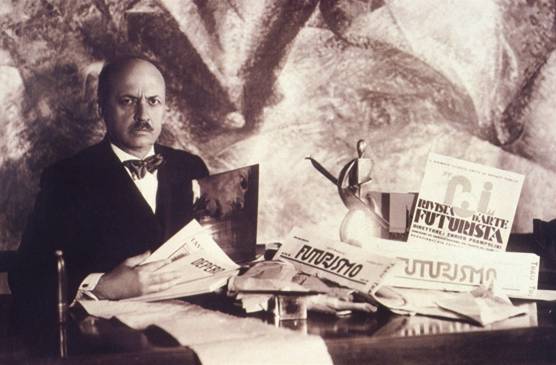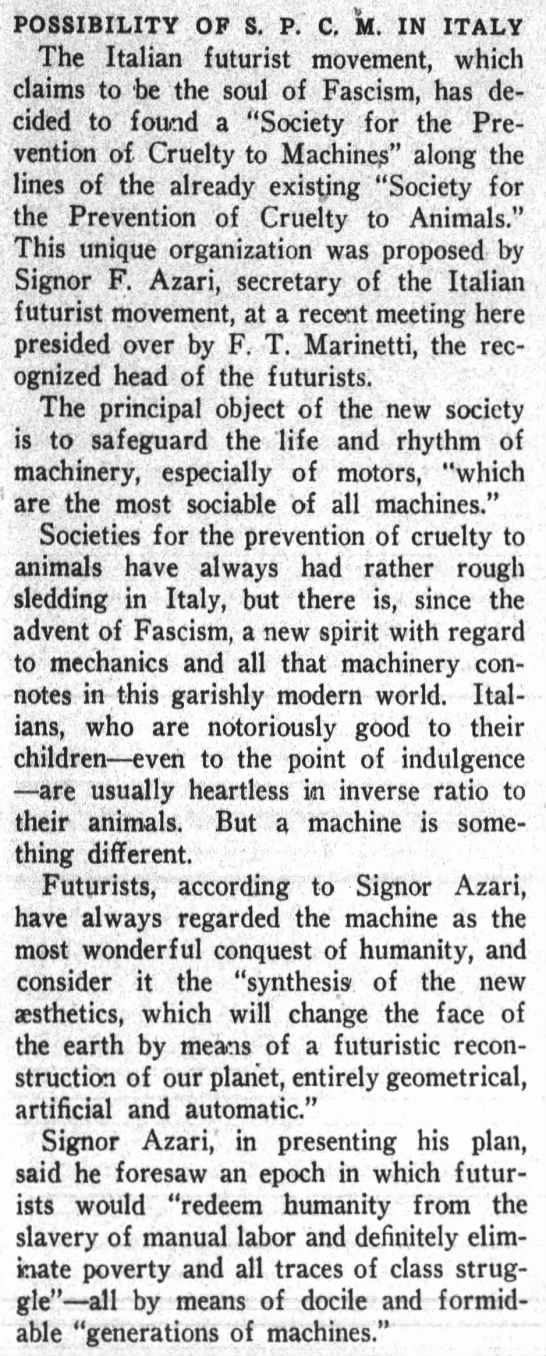Filippo Tommaso Marinetti and his fellow Futurists were sexist and fascistic and militaristic, not unique to them in Italy during the first half of the twentieth century. Some of their ideas were insane (sleep was to be abolished) and some neutral (tin neckties, after all, are no dumber than any other kind), but a few were worth thinking about.
One such political thought: The Futurists thought automation would eventually eliminate poverty and inequality, something that’s possible if not inevitable. A less-important though interesting cultural idea: Machines and industrial sounds should be be used to create dance music. It was very prophetic, if not initially appreciated. Their plan for reinventing boxing never came to fruition, however, as you can read in the following article about a Futurist exposition in Rome from the July 16, 1933 Brooklyn Daily Eagle.









